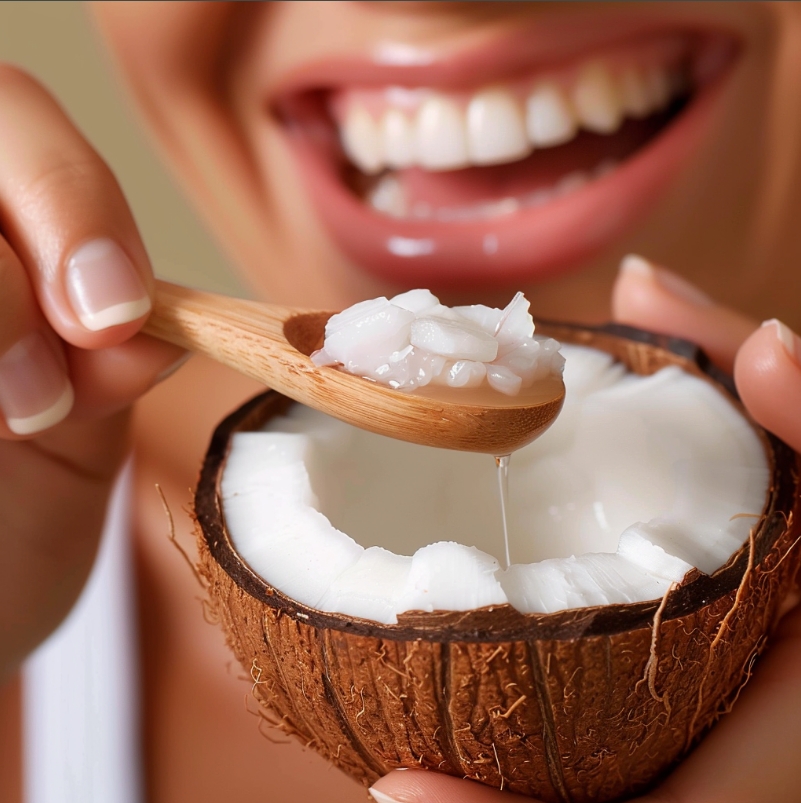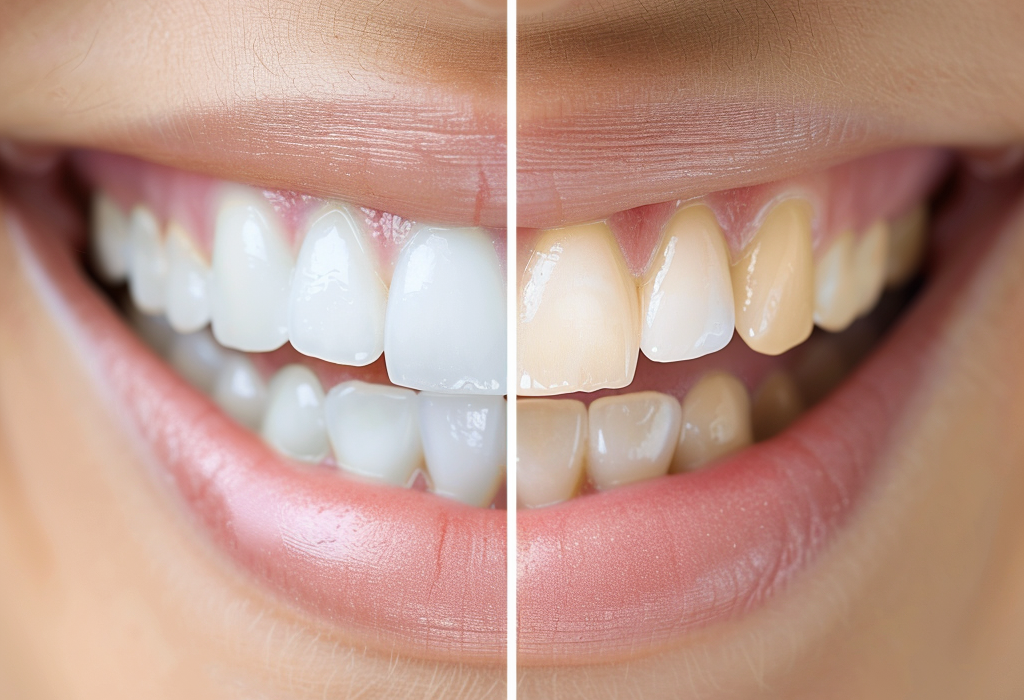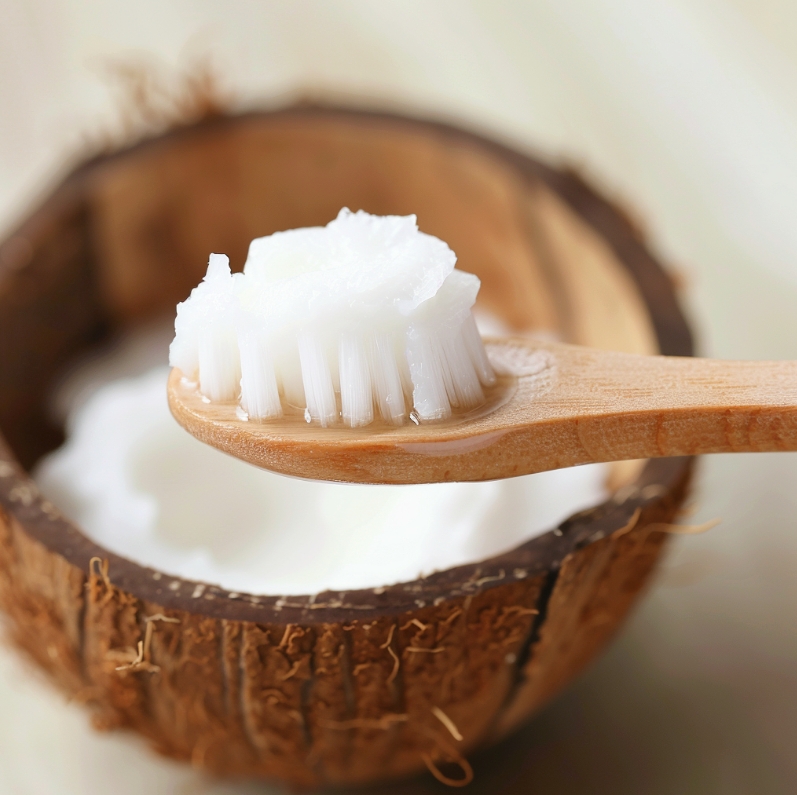Will Coconut Oil Whiten Teeth: Exploring the Benefits and Methods
Coconut oil has recently gained popularity as a natural remedy for various health and beauty concerns. One of the most talked-about benefits is its potential to whiten teeth. But does coconut oil whiten teeth, and how does it compare to traditional whitening methods? This article explores the science behind coconut oil and teeth whitening, how to use it effectively, comparisons with other methods, real-life experiences, and potential risks and side effects.
The Science Behind Coconut Oil and Teeth Whitening
Coconut oil’s teeth-whitening properties are often attributed to its natural composition and antibacterial effects. Here’s a closer look at the science:
1. Antibacterial Properties
Coconut oil contains lauric acid, a fatty acid known for its antibacterial and antimicrobial properties. These properties help reduce harmful bacteria in the mouth that can cause plaque buildup, bad breath, and gum disease, indirectly contributing to a whiter appearance of teeth.
2. Oil Pulling Technique
Oil pulling is an ancient Ayurvedic practice where oil is swished around the mouth to remove toxins and bacteria. Swishing coconut oil can help remove surface stains on teeth, making them appear brighter.
3. Enzyme Activity
Coconut oil may contain enzymes that can break down food particles and stains on the teeth, further contributing to its whitening effect.
4.Natural Plaque Remover
Regular use of coconut oil can help reduce plaque formation, which often leads to a cleaner and whiter appearance of teeth.
How to Use Coconut Oil for Teeth Whitening
There are several methods to use coconut oil for teeth whitening, with oil pulling being the most common:
1. Oil Pulling
Oil pulling involves swishing a tablespoon of coconut oil in your mouth for 15-20 minutes. Here’s how to do it:
- Take a tablespoon of high-quality, organic coconut oil.
- Swish the oil around your mouth, making sure it reaches all areas.
- Do not swallow the oil, as it contains toxins and bacteria pulled from your mouth.
- Spit the oil into a trash can (not the sink to avoid clogging).
- Rinse your mouth with water and brush your teeth as usual.
2. Coconut Oil Toothpaste
You can make homemade toothpaste by mixing coconut oil with baking soda. Here’s a simple recipe:
- Mix equal parts coconut oil and baking soda to form a paste.
- Add a few drops of peppermint essential oil for flavor (optional).
- Use this paste to brush your teeth as you would with regular toothpaste.
3. Direct Application
For a quicker method, you can apply coconut oil directly to your teeth using your fingers or a toothbrush:
- Dip your toothbrush or finger in melted coconut oil.
- Rub the oil directly onto your teeth for about 5 minutes.
- Rinse your mouth thoroughly and brush your teeth.
Comparing Coconut Oil to Traditional Teeth Whitening Methods
When comparing coconut oil to traditional teeth whitening methods, several factors come into play:
1. Effectiveness
Traditional Whitening Products:
- Products like whitening strips, gels, and professional treatments typically contain hydrogen peroxide or carbamide peroxide, proven to whiten teeth effectively and quickly.
- These products offer noticeable results within days to weeks.
Coconut Oil:
- Coconut oil provides a more gradual whitening effect. Regular use over weeks to months is required to see significant changes.
- The whitening effect is primarily due to plaque reduction and surface stain removal rather than bleaching.
2. Safety and Side Effects
Traditional Whitening Products:
- Potential for tooth sensitivity and gum irritation due to the potent bleaching agents.
- Risk of overuse leading to enamel damage.
Coconut Oil:
- Generally safe for daily use with minimal risk of side effects.
- It rarely causes sensitivity or irritation, making it suitable for sensitive teeth.
3. Cost
Traditional Whitening Products:
- It can be expensive, especially for professional treatments.
- Over-the-counter products are more affordable but still involve recurring costs.
Coconut Oil:
- Highly affordable and readily available.
- A cost-effective alternative for those looking to maintain oral health and achieve gradual whitening.
Try Lidercare Now!
We Help You Launch New Products, And Continue To Grow. Try Us With 20% Off Your First Order!
Real-Life Experiences: Does Coconut Oil Whiten Teeth?
Real-life experiences with coconut oil for teeth whitening vary, with some users reporting positive results while others see minimal change:
1. Positive Experiences
- Many users who practice oil pulling regularly report whiter, cleaner teeth and improved oral health.
- Some individuals appreciate the natural, chemical-free approach to teeth whitening.
2. Mixed Results
- Others may not see significant whitening but do notice improved gum health and reduced plaque.
- The results can be less dramatic than traditional whitening methods, leading to mixed reviews.
3. Consistency is Key
- The effectiveness of coconut oil largely depends on consistent, long-term use.
- Those expecting quick results may be disappointed, but gradual improvements are often noted with regular use.
Potential Risks and Side Effects of Using Coconut Oil on Teeth
While coconut oil is generally safe, there are some considerations to keep in mind:
1. Minimal Side Effects
- Coconut oil is unlikely to cause adverse effects, but some users might experience a slight gag reflex during oil pulling.
- Ensure you do not swallow the oil after pulling to avoid ingesting toxins and bacteria.
2. Allergic Reactions
- Although rare, some individuals may have an allergic reaction to coconut oil. Discontinue use if you notice any irritation or discomfort.
3. Not a Replacement for Traditional Dental Care
- Coconut oil should complement, not replace, traditional oral hygiene practices such as brushing and flossing.
- Regular dental check-ups and cleanings are still essential for maintaining oral health.
Conclusion
Coconut oil can be a natural and gentle option for those looking to enhance their oral hygiene and gradually whiten their teeth. While it may not offer the immediate results of traditional whitening methods, its antibacterial properties and ability to reduce plaque make it a valuable addition to your oral care routine. As with any treatment, consistency is critical, and understanding coconut oil’s benefits and limitations will help you achieve the best results.
Table of Contents
Awesome! Share to:
Latest Blog Posts
Check out the latest industry trends and take inspiration from our updated blogs, giving you a fresh insight to help boost your business.






